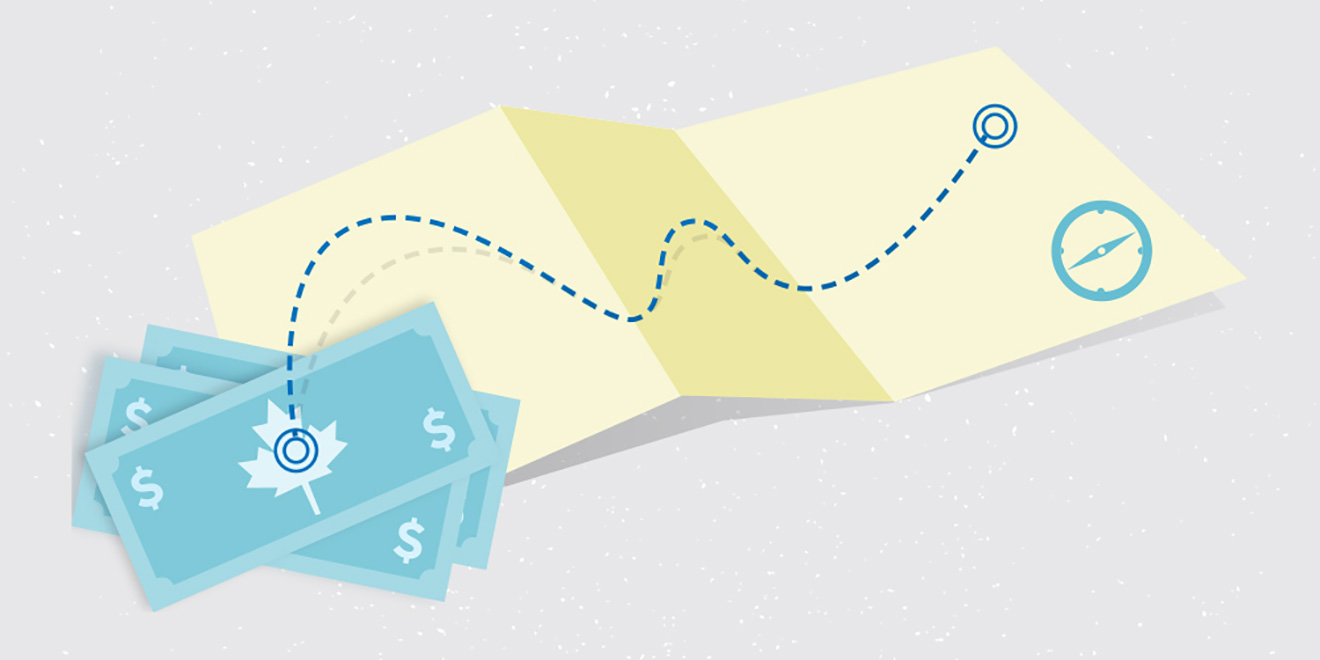Living through a phase of lock downs and physical distancing measures protected the health of our communities—but who knew this temporary way of life could also protect our wallets? According to a report from Payments Canada* consumer spending habits have changed drastically, “Overall, 75% of Canadians reported they were spending less than pre-COVID-19…with 93% indicating they stopped going out completely except for necessities.” With fewer trips to the grocery store, and activities coming to a halt, many people have seen their wallets grow.
As provinces shift to reopen businesses and regulations lift on activities, now is the perfect time to re-evaluate your spending habits. To help you start setting financial goals (we'll stick to what we're best at) we're answering some common questions.
Why should I set goals?
Let's start with what's in it for you if you set goals for yourself. First and foremost, having goals keeps you accountable. If you don't officially commit to something, it's easy to back out and pretend nothing happened. Having a goal makes it harder to do that.
Goals also help you prioritize what's important to you in your career, personal life, and even your finances. Working towards a goal gives you focus and helps weed out distractions. Having a purpose with your goal will drive action and motivate you as you recognize success along the way.

How do I set a good goal?
Being thoughtful in your goal setting process is key. There's more to setting a (good) goal than simply saying "I'm going to (blank)".
Setting good goals improves your chances of success and good goals are SMART:
- Specific: drill down to details (the why and the what).
- Measurable: have a target to determine success (the what cont'd).
- Action oriented: outline the steps or method you'll use to get there (the how).
- Realistic: within the realm of possibility and reasonably within your control (the reality check).
- Timely: have a clear timeframe for achievement (the when).
As an example, notice the difference between these two goals:
- Save more money.
- Build up an emergency fund by putting $100 from every paycheque this year into a savings account.
The second goal is SMART and after comparing the two, it's easy to understand how being SMART with your goals will set you up for success.
How do I stay on track with my goals?
As we mentioned, a great benefit of creating goals is the motivation that comes along with noticing success (no matter how small) and regularly tracking your progress is key.
If you're a visual person, try keeping a journal or a running list of updates in a notebook, or even taking photos to show yourself how far you've come.
If you're tech savvy, track your progress with one of the many apps or digital tools (we've got some helpful ones when it comes to saving money). Opt in to receive notifications when you reach milestones throughout your journey and you'll be motivated to keep it up.
And if a cheer squad gets you hyped, ask a friend or family member to act as an accountability buddy. Check in with that person regularly to celebrate your wins and get a dose of encouragement when you need it.
If you're ready to set up a financial goal for yourself, sign in to Servus online banking and use our digital goal tool to help you get started. If you'd like to talk to a financial advisor who can help you through the process, we're always here to help.
Additional resources available at Payments Canada.

